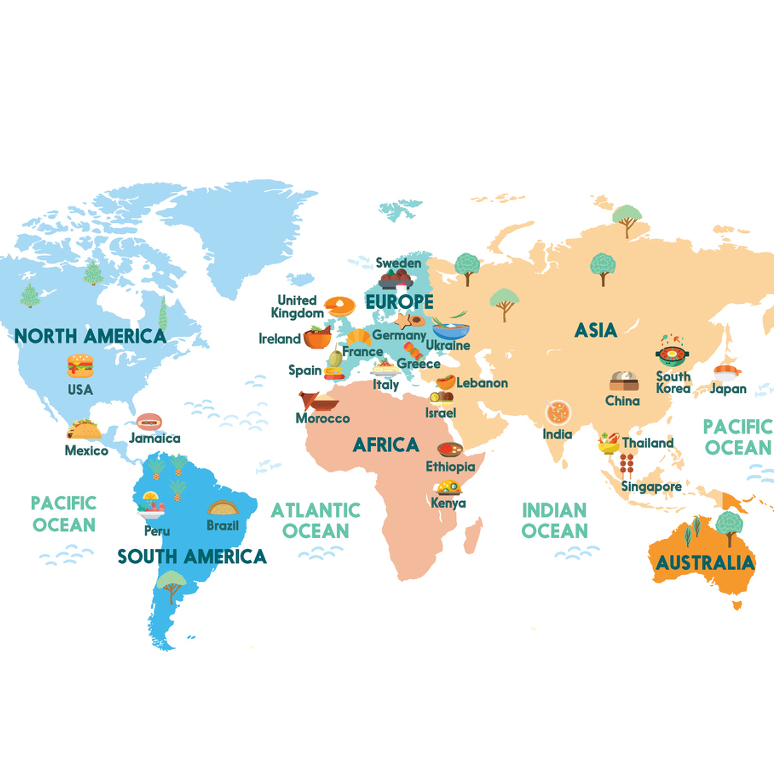Israel, a land filled with rich history and diverse cultures, has a story that dates back thousands of years. Let's embark on a journey through time to discover the fascinating history of this ancient land.

City of the King David, Jerusalem, Israel
The Ancient Levant
The geographical location of Israel was known in ancient times as the Levant. It encompassed regions known as Canaan and Palestine.
Israel’s story begins around 2000 BCE, when a man named Abraham is said to have traveled to the region with his family. Abraham is considered the father of the Israelites, the people who would later become known as the Jews. Fast forward to around 1000 BCE, and we meet King David, a legendary figure who united the Israelite tribes and established Jerusalem as the capital.
King Solomon, David's son, ruled Israel around 960 BCE. Known for his wisdom and wealth, Solomon built the magnificent First Temple in Jerusalem. This temple became a central place for worship and a symbol of the Israelite kingdom's prosperity. After Solomon died, the kingdoms broke into two: Israel and Judah, and were later attacked by neighboring countries.
The Conquering Armies
Assyria conquered the kingdom of Israel in 732 BCE. Then in 586 BCE, the Babylonians, led by King Nebuchadnezzar, conquered Jerusalem and destroyed the First Temple. This event marked the beginning of a challenging period for the Israelites, known as the Babylonian Captivity, during which many were taken as captives to Babylon.
Around 539 BCE, a new power emerged on the world stage: the Persian Empire. Under the rule of King Cyrus the Great, the Israelites were allowed to return to their homeland and rebuild the Second Temple in Jerusalem. This marked a hopeful chapter in their history, as they worked hard to restore their city and cultural heritage.

A Family Celebrating Hannukah
Greek and Roman Influence
The following centuries saw the rise of the Hellenistic Empire, led by Alexander the Great. Israel came under Greek influence in 332 BCE, and tensions arose between those who embraced Hellenistic culture and those who clung to their traditional ways. In 165 BCE, a group known as the Maccabees led a successful revolt against the Greek rulers, reclaiming the Second Temple and establishing the festival of Hanukkah to celebrate their victory.
As time passed, the Roman Empire took control of Israel. Around 4 BCE, a figure named Jesus of Nazareth emerged, preaching messages of love and compassion. His teachings would later form the basis of Christianity, one of the world's major religions.
The Siege of Jerusalem
In 70 CE, the Romans, led by Emperor Titus, destroyed the Second Temple in Jerusalem. This event, known as the Siege of Jerusalem, forced many Jews into a widespread Diaspora: a dispersion to various parts of the world. Despite this, Jewish communities persisted, maintaining their traditions and cultural identity.
During the medieval period, various empires and caliphates controlled the region. Jerusalem, considered a holy city by Jews, Christians, and Muslims, changed hands multiple times. This era witnessed a flourishing of culture and learning, with scholars from different backgrounds contributing to the advancement of knowledge.

The Dead Sea
The State of Israel
In the late 19th century, a movement called Zionism emerged, advocating for the establishment of a Jewish homeland. Theodor Herzl, a key figure in the Zionist movement, played a crucial role in the establishment of modern Israel. In 1948, the State of Israel was officially declared, and David Ben-Gurion became its first Prime Minister.
Today, as in the past, Israel is at the center of conflict. Many cultures live in the small region, and all are trying to find their place in the ever-changing world. The population of Israel is about 80% Jewish and 20% non-Jewish. In order to preserve the important history of Israel, UNESCO has named several spots as World Heritage Sites.
One of these sites is the Old City of Jerusalem. This walled city is home to religious landmarks such as the Western Wall, the Church of the Holy Sepulcher, and the Dome of the Rock. The Old City preserves a unique blend of Jewish, Christian, and Muslim cultural heritage.
Now, let's explore some little-known facts about Israel.
Did you know that Israel is home to the Dead Sea, one of the saltiest bodies of water on Earth? It's so salty that you can effortlessly float on its surface!
Israel is the only country to have revived a dead language (Hebrew) and made it their national language.
In the Negev Desert, there's an ancient city called Beersheba with wells dating back over 4000 years.
Israel is a leader in technological innovation, with the highest number of startups per capita globally. The country is often referred to as the "Startup Nation."
The history of Israel is a captivating tale of ancient civilizations, triumphs, and challenges. From the times of Abraham and King Solomon to the establishment of modern Israel, this land has witnessed the rise and fall of empires, cultural exchanges, and the perseverance of a people with a rich heritage.
Explore the cuisine of Israel when you eat2explore from our explore ISRAEL box!







